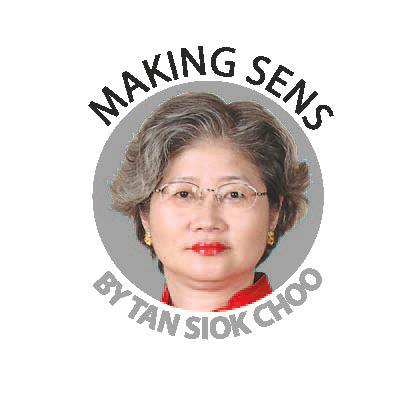FOR those interested in political leadership and governance, Three Kingdoms is essential reading. One of four great Chinese classical novels, Three Kingdoms depicts the struggle among Cao Cao of Wei, Xuande of Shu and Sun Quan of Wu for supremacy after the fall of the 426-year Han empire, China’s longest-reigning dynasty, with three interregna.
Describing the novel as “seven parts fact and three parts fiction,” Zhang Xuecheng complained “fact and fiction shouldn’t be scrambled as they are in Three Kingdoms.”
In his historical plays, William Shakespeare often mixed fact and fiction. A fat, jolly braggadocio, Sir John Falstaff, companion to Prince Hal, the future Henry V of England, has been lauded as “one of Shakespeare’s great inventions”, by Sylvia Morris in a blog. “Falstaffian” is now an adjective.
Reading Three Kingdoms over several days was physically challenging but intellectually enthralling. Attributed to Luo Guanzhong and translated by Moss Roberts, the two-volume work encompasses 120 chapters, 93 pages of notes in an all-too-small font, features 1,000 personalities spanning 113 years of warfare, betrayals and shifting loyalties.
First, the novel gives primacy to the Wei-Shu conflict. Historically, the primary conflict was between Wei and Wu, Moss wrote in the notes.
Wei emperors’ claim as legitimate successors to the Han dynasty rests on two factors. Cao Cao controlled the largest territory. Nominally the prime minister, he was the de facto ruler of the Han empire. In AD220, his son, Cao Pi, forced the last Han Emperor Xian to abdicate.
Xuande, also known as Liu Bei, had a dual claim to be legitimate successors to the Han dynasty. As a distant relative of the Han emperors, he shared the same surname Liu. Unlike Cao Cao – depicted in the novel as cruel, cunning and Machiavellian – Xuande is characterised as a humane and virtuous leader.
By focusing on the Wei-Shu conflict, Three Kingdoms underscores a revolutionary theme: “The empire belongs to no one man but to all. He who has virtue shall possess it”.
Second, Xuande’s strategist Zhuge Liang, also known as Kong Ming, was very shrewd in assessing and manipulating individuals.
One notable example is his success in persuading Sun Quan, the Southland’s ruler, and his trusted adviser, Zhou You, to ally with Xuande against Cao Cao. Zhou Yu and Sun Quan’s late brother Sun Ce married two famous beauties, the Qiao sisters.
Feigning ignorance that Zhou Yu’s wife was one of the Qiao sisters, Zhuge Liang suggested that one way to pre-empt military conflict was to offer the two Qiao beauties to Cao Cao.
To convince Zhou Yu, Zhuge Liang recited a poem. Commissioned by Cao Cao, this poem included a phrase “holding two bridges” or “qiao”. Zhuge Liang claimed this indicated Cao Cao’s intention to possess the two Qiao sisters, a claim confirmed by Cao Cao later in the novel.
Through this stratagem, Zhuge Liang ensured the Southlands wouldn’t ally with Cao Cao against Xuande.
Third, rulers and top aides must trust each other. On his deathbed, Cao Rui entrusted his young son, Cao Fang, to Cao Shuang and Sima Yi. Later, a distrustful Cao Shuang wrested military power from Sima Yi and relegated the latter to the civilian position of imperial guardian. Sima Yi feigned illness and waited for an opportunity to strike back.
One day when Cao Shuang left the capital, Sima Yi launched a coup, regained power and executed Cao Shuang, his brothers and the entire clan.
Fourth, a clever subordinate who flaunts his intellectual prowess endangers himself.
One poignant example is Yang Xiu who worked for Cao Cao. During a military stalemate, Cao Cao, undecided whether to advance or retreat, was given a bowl of chicken broth with chicken ribs. When asked the password for that night, Cao Cao said “chicken ribs”.
Informed of the password, Yang Xiu started packing for his return home. Questioned by Xiahou Dun, Yang Xiu said: “Chicken ribs have no meat on them, yet one relishes them for the flavour.”
Analysing the Wei army could neither advance nor retreat, he predicted a quick departure. Impressed, all army commanders emulated Yang Xiu’s preparations.
Yang Xiu’s perceptive reasoning infuriated Cao Cao who ordered Yang Xiu’s execution. Later when the Wei army was forced to retreat, a remorseful Cao Co exhumed Yang Xiu’s body and gave it an honourable burial.
Fifth, another recurring theme is Li Hui’s memorable words: “... a wise bird chooses the tree it will rest on, a wise vassal the lord he will serve.” Zhuge Liang was the exemplar of this maxim.
Although tiresome to read, Moss’ notes offer an unsurpassed understanding of Three Kingdoms.
Opinions expressed in this article are the personal views of the writer and should not be attributed to any organisation she is connected with. She can be contacted at siokchoo@thesundaily.com













